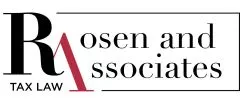- within Media, Telecoms, IT and Entertainment topic(s)
Canadians have come far with destigmatizing and normalizing therapy, however a barrier many still face in accessing therapy is the excessive costs. In November of 2023, the Minister of Finance proposed an amendment to Part II of Schedule V to the Excise Tax Act. The proposed amendment would add psychotherapy and therapy counselling to the list of Goods and Services Tax (GST) or the Harmonized Sale Tax (HST) exempt services. Luckily, starting June 20, 2024, therapy services will no longer collect GST/HST, increasing accessibility of mental health services for Canadians.
However, this means practitioners will need to gain a new understanding of certain procedures and rules to ensure compliance with their tax obligations.
Eligibility for Exempt Therapy Services
The following information only applies to practitioners if they are located outside of Quebec. Revenue Quebec has outlined separate tax obligations for practitioners in Quebec.
For therapy services to be exempt, the practitioner must meet the following criteria:
- If the practitioner's province of practice has a regulatory body, practitioners must have a valid licence, in their province of practice, to provide therapy services; or
- If the practitioner's province does not have a regulatory body, they must have equivalent qualifications.
After ascertaining the practitioner's eligibility, the services they are providing must be assessed. The practitioner must provide therapy services that are within the scope of practice.
To determine if services are within the scope of practice, practitioners should turn to the provincial regulatory body. The scope of practice is determined by reviewing the rules and procedures of the regulatory body in the province. If the practitioner is in a province without a regulatory body, they still must confirm with the regulatory body of a province that does have one.
Regarding the relationship between practitioner and client, there must be an ongoing relationship between the practitioner and client. The services that are exempt must be for the purpose of maintain or improving the individual's health.
How new Exemption Rules Affect Practitioners
The impact on practitioners is particularly important for practitioners who are currently registered for and collecting GST/HST.
One of the most impactful affects on practitioners is the increased costs that will arise from exempt therapy services. Prior to the new exemption, practitioners would be able to claim an Input Tax Credit, which would provide a refund on the GST/HST paid on your expenses.
In addition, as a result of the potential change in tax status of their supplies, a licensed counselling therapist may be required to remit the GST/HST resulting from a change in use (that is, a deemed sale and repurchase) of certain capital property acquired prior to the proposed legislation becoming law.
Lastly, if the practitioner only provides exempt services, the CRA is encouraging them to deregister their GST/HST account by the end of 2024. Although you are welcome to keep your GST/HST account registered, the CRA is recommending deregistering to ensure no future tax or administrative obligations stem from the account.
Conclusion
As the stigma associated with accessing therapy has diminished in recent years, the costs associated with accessing treatment still pose a large financial barrier for many Canadians. Exempting eligible therapists and their businesses from collecting GST/HST is a positive change in access to mental health services for Canadians. However, it does create new tax and administration obligations for practitioners.
The content of this article is intended to provide a general guide to the subject matter. Specialist advice should be sought about your specific circumstances.
[View Source]


